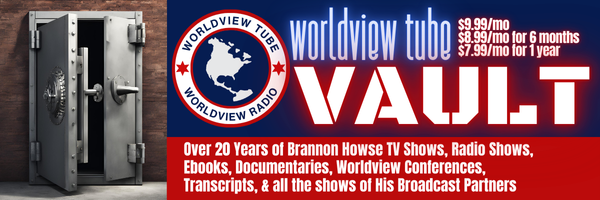Crosstalk: September 6, 2018
As we've entered the month of September there are a number of Jewish feasts that take place. This Crosstalk looked at what they are and their significance.
Joining Jim to bring listeners the details was Andy Ferrier. Andy is a representative with the Midwest Messianic Center. Andy is burdened with reaching Jewish people with the good news that Jesus (Yeshua), is the Jewish Messiah.
This Sunday evening at sunset begins the Jewish holiday of Rosh Hashanah (Feast of Trumpets). On this holiday, Jews will go to the synagogue where a service will begin at about 8am and end around 12 noon. Prayers are recited while blowing the shofar (the ram's horn).
According to Andy, the Feast of Trumpets speaks prophetically of the rapture of the church. In 1 Corinthians 15, Paul said the rapture would take place at the last trumpet.
Rosh Hashanah is a very festive time for Jews. People send greeting cards to one another and there's a ceremony where they go down to the river and throw bread crumbs into the water which signifies the casting away of their sin. When going to and from the synagogue during this time, Jews will say to each other, 'May your name be inscribed in the book of life.'
Andy pointed out that God gave the Jews 7 feasts. Most were festive and times of celebration. However, Yom Kippur (Day of Atonement) is the most holy day of the Jewish year. If you read Leviticus 16, God provided great detail about what was to be done on this most holy day. God said Israel was to afflict their soul. Therefore on Yom Kippur, Jews will fast for 24 hours.
It was on that day that God told Israel to bring a number of animals to the temple for sacrifice, but there would be two goats. Lots would be cast for them and the one chosen was taken by the high priest into the temple and sacrificed. The blood was taken into the Holy of Holies and sprinkled on the Mercy Seat of the Ark.
The goat that wasn't chosen was known as the 'scapegoat'. It was led away in the wilderness which signified the carrying away of the sins of Israel. It's a beautiful picture of how Jesus was sacrificed in our place.
The final Jewish Fall feast discussed was the Feast of Tabernacles (Sukkot). At that time, Jews build booths as God instructed Israel to dwell in booths for 7 days. Modern Jews don't live in them, but they will do things such as having coffee, tea or eat meals in them.
Prophetically, the Feast of Tabernacles speaks of the return of Jesus to earth to rule and reign and set up his kingdom on earth for 1,000 years. In Zechariah 14, it says that when Jesus sets up His kingdom, all the nations will be required to go up to Jerusalem to keep this feast.
Were all these feasts observed during the time of Christ? What about the preparations for the third temple? Is there a red heifer program taking place? These and other questions are answered and Crosstalk callers also provide their input.


































